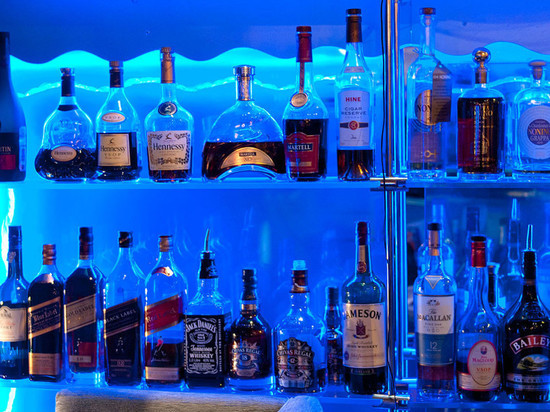The expert predicted problems for the imported alcohol market by the new year
[ad_1]

The choice of imported alcohol on store shelves has already been significantly reduced. And the forecast of experts about what kind of champagne we will celebrate the New Year with sounds unequivocally – most likely, with domestic champagne. Many market participants believe that in this situation there is only one way out – the parallel import of alcohol, but distributors and manufacturers oppose it. To comment on the situation, “MK” asked an economist, professor of the Russian University of Economics. G.V. Plekhanov Vyacheslav CHEGLOVA.
– Initially, the Ministry of Finance did not support the idea of retailers to introduce parallel imports of alcoholic beverages. But then the decision changed, why?
— AKORT (Association of Retail Trade Companies) is a fairly serious organization, they have a lot of connections in power, so it is not surprising that today the Ministry of Finance says one thing, and tomorrow it may say something else.
A number of distribution companies that have always been involved in the supply of imported alcohol for domestic retailers, after the introduction of anti-Russian sanctions, were under threat. In today’s situation, when direct deliveries are closed, these companies could lose a significant share of the turnover, so AKORT is actively lobbying for permission to import alcohol in parallel.
Nothing prevents to carry imported alcohol through the same Kazakhstan. The scheme is the same. The problem is that many Russian manufacturers are against it, saying: “Well, it’s good that they left, but they freed up a market share for us, and we will occupy it with our goods.” And the Ministry of Finance is just interested in supporting Russian companies that are large taxpayers, plus they create jobs. In addition, many people do not understand why it is necessary to import expensive goods from abroad, while not everyone can afford them.
– What if counterfeit products get into Russia this way?
– A person with a lot of money will not buy a fake. If he is sold fake Scotch whiskey or French cognac in some store, he will not go there anymore, they value such buyers, so they will certainly bring the most genuine, original goods.
– Is there a danger that we will face a shortage of alcoholic products before the New Year?
– It is impossible to fully cover all the needs in the near future, this is unambiguous. It is clear that our alcohol will be different from imported. But demand will switch. Those who prefer imported alcohol will buy it from offshore stores or ship it from abroad. They will cover their needs, although it will cost them much more. In addition, people who enjoy luxury often fly abroad, so they can buy there. Not to mention duty-free shops at airports, where you can also buy any alcohol.
– For the rich, the soul hurts just the least, but what will we drink at the festive New Year’s table?
– There will definitely not be empty store shelves, but a change in the structure of the offer will most likely occur: a number of foreign brands may disappear. Well, let’s not drink imported champagne, let’s switch to ours, domestic, what’s the problem? Just think, most of the country used to also drink only their own, no one practically drank foreign. Significant changes have taken place only for the middle class, this layer of society really lost the opportunity to buy imported alcohol for some time. But retail chains, of course, are primarily interested in having imported alcohol on store shelves, there has always been a demand for it.
– Are you sure that domestic producers of alcohol will have enough capacity to fully satisfy the demand of buyers and occupy the vacant niche after the departure of foreign brands?
– We will not be able to replace some types of alcohol with others in the near future, but the niche needs to be filled, so we will increase production capacity.
– How will the current situation affect the work of bars, pubs and restaurants?
I don’t see any disaster here either. Some establishments will find supply channels through parallel imports, while others will be forced to switch from imported products to domestic ones, and visitors to these bars and restaurants will drink our wines, we have already gone through all this.
[ad_2]
Source link






